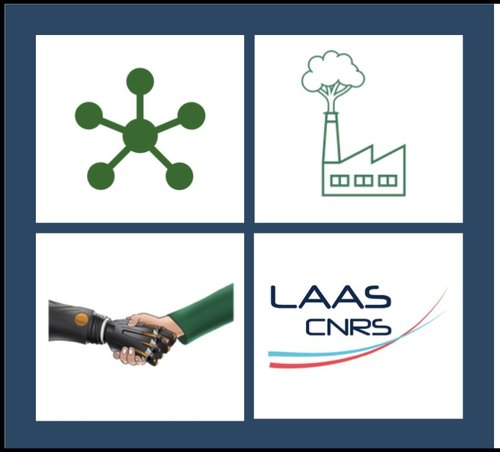Industry of the Future

Responsables
The Industry of the Future is a paradigm that advocates the complete integration of the production process, from design to manufacturing and its supply chain into a single collaborative system, capable of responding almost instantly to fluctuations in demand, user needs or the logistics environment.
The Industry of the Future is a field of research in its own right, nationally and internationally recognized. It is also an important socio-economic subject at the regional level, and particularly in Occitanie, where political decision-makers are mobilizing with local, institutional and academic actors, to accelerate the transition of SMEs-SMI-ETIs towards the manufacturing industry. future.

The Industry of the future involves various technologies, advanced methods and algorithms likely to increase the efficiency of business organization. This involves digitally integrating, in a global manner, the aspects linked to the design of products, their manufacturing, their maintenance, their recycling, the management of their supply chain while guaranteeing economic, environmental and social sustainability. .
Many of the technological pillars of the industry of the future are studied at LAAS-CNRS, in isolation or in other application contexts:
- integrated communicating sensors;
- autonomous and collaborative robotics;
- connected wearable accessories;
- the internet of things;
- artificial intelligence, operational safety;
- cyber security;
- optimization of production, maintenance and logistics;
- additive manufacturing.
The laboratory therefore masters the different skills allowing it to design innovative digital integration approaches. The “Industry of the future” application axis aims to encourage transdisciplinarity by bringing together the skills of departments and research teams around this theme. Beyond that, it is about defending an ethical vision of the industry of the future that is economically viable and more respectful of the environment and people.
Another ambition is to contribute to the virtuous research-training-innovation cycle. These ambitions are broken down into 3 objectives:
- build within the laboratory a shared vision of the industry of the future and identify links with current research;
- identify existing synergies (or to be created), prioritize and support them to lead to the genesis of prototypes and technological building blocks that can be capitalized and reused;
- integrate the bricks into demonstrators by taking advantage of laboratory facilities, or other available technological platforms, such as the Factory-School demonstrator at the Maison de la formation Jacqueline Auriol.
A logic of financing by national and European projects will be favored to support the maturation of the prototypes, in conjunction with European laboratories that are experts in the field.
Départements concernés











